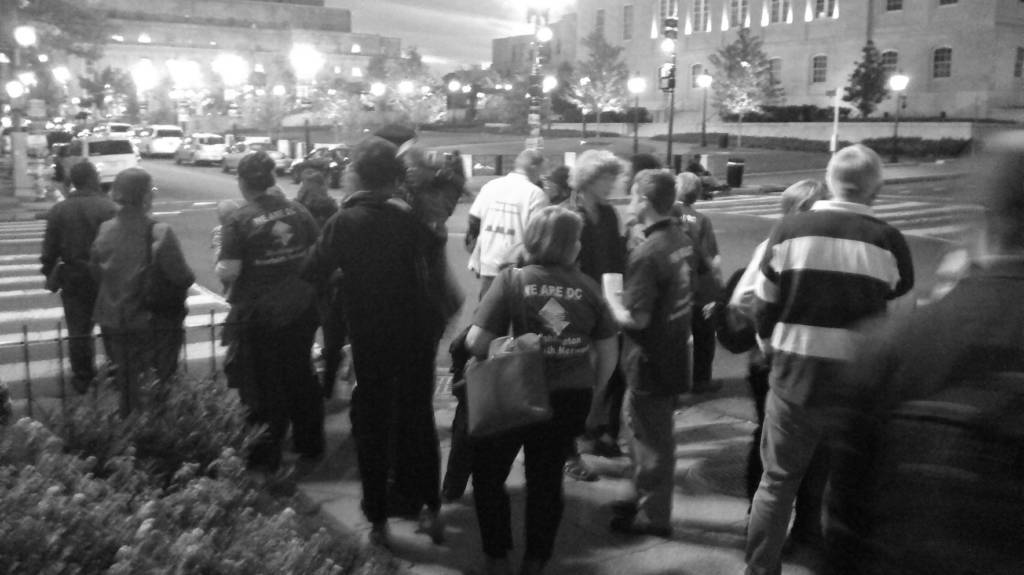In these dire times, the voting is an essential part of the democratic process.
This will be the last year that even the president can find partners who are willing to work with him. All over the country, the same scenario plays out to get out the vote.
Locally, the District of Columbia will be changing its leadership. The city is choosing a new mayor, and several wards will be choosing new council members. At such an important time, the question is raised: why did so few people take part in the April primary elections?
According to the primary results posted by the District’s Board of Elections, voters appear disengaged this year. Some precincts with as many as 7,000 registered voters didn’t even break 1,000 votes.
Of the city’s 369,037 registered voters at the time, 14,755 — or 15 percent voted early in the April. And 11,584 — about 12 percent, voted absentee or via special ballots. The majority of primary voters, 73,055, voted on election day. But altogether, the 99,394 voters who participated amounted to just 27 percent of people in the District who were eligible to participate in the election.
Brianne Nadeau, who emerged victorious over incumbent Councilman Jim Graham in the primary, attended a meeting along with David Schwartzman — candidate for D.C. “shadow senator” — that gave both a chance to voice their stance on various issues surrounding homelessness.
Nadeau pondered the question: How do we find housing for these people?
“It’s up to us to come up with a feasible financial plan,” she said. “Affordable housing is too big an issue. All kinds of people need affordable housing.”
Schwartzman too considered the question.
“We know that we cannot rely on the market to produce affordable housing,” he noted. He emphasized the importance of being more creative and suggested ideas like adjusting the city’s area median income (AMI), repairing public housing and cracking down on zoning problems.
Audience members were able to learn a lot about the candidates by listening to their thoughts on important issues, but will they now get to the polls? Informed voters can make a real difference in an election such as the one coming on Nov. 4.
The mayoral candidates too are out mustering votes as Election Day approaches. Those candidates faced off on various issues in front of a huge crowd gathered at Anacostia High School on Oct. 16.
The candidates were asked about their position on the DC General family shelter. Front-runner Muriel Bowser, a Democrat, said she wasn’t in support of large shelters and feels “they are not for families.”
Independents Carol Schwartz and David Catania said they want to see the shelter closed but under certain conditions. Schwartz is looking at renovation or something better on the site. Catania is looking for a long term plan, saying “a year is not enough time to close a shelter to do this.”

When voters are concerned and they are homeless, these are the issues that directly pertain to them. The candidates were also asked about affordable housing. Each candidate held different views on affordable housing.
Catania said “there is no stopping progress” and that giving residents a high-quality education is a priority. “We need to stop making the city unsafe.”
Schwartz said she feels the residents who were forced to move to Prince George’s County in search of better lives should be invited back to the city through the use of a tax incentives.
Bowser thinks the city needs to invest more in affordable housing and focus on closing economic gaps.
Each candidate described “affordable” differently. Catania acknowledged that Washington has “a homelessness crisis that is crushing our city.” Schwartz felt the government has been doing less and less to create affordable housing. She suggested bringing back public housing for income below 30 percent of the AMI. Bowser promised to commit $100 million to the housing production trust fund for the next 10 years to produce affordable housing and is in support of renovating public housing units.
Valerie Williams, a potential voter and member of the Organization for United People (OUP), said she has a problem with business as it is currently being conducted at city hall.
“It’s not about money, its about people’s lives.” She said people don’t want to vote anymore. “Its the fear. We have got to get rid of that fear.”
Another voter, Angie Stackhouse, feels it’s not about money either but about ownership and control.
And another, a man named Rodney, said people are tired of being disrespected. “They supposed to be neighbors — when you vote for a person they gotta connect. They want someone that feels safe.”
Rodney said he feels that most District voters don’t care very much about a soccer stadium, and some young adults don’t care at all.
“We’re not hurting for a soccer stadium,” he said. “When I say ‘youngins’, I mean younger than me but old enough to vote. We need someone to turn them around.”
Voters like Williams and Stackhouse are doing their best to stay active and informed but many other residents remain apathetic. As of August 2014, there were over 400,000 registered voters in the District. How many will turn out between today and November 4th?








